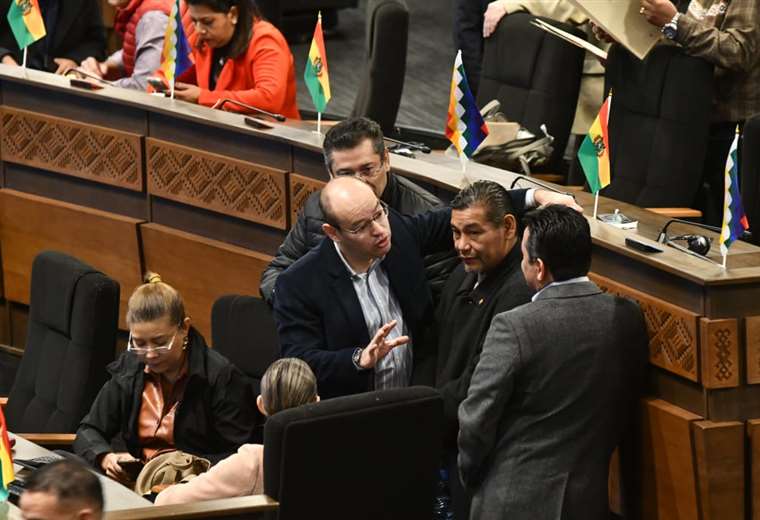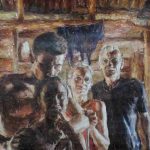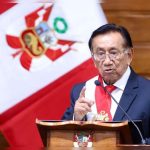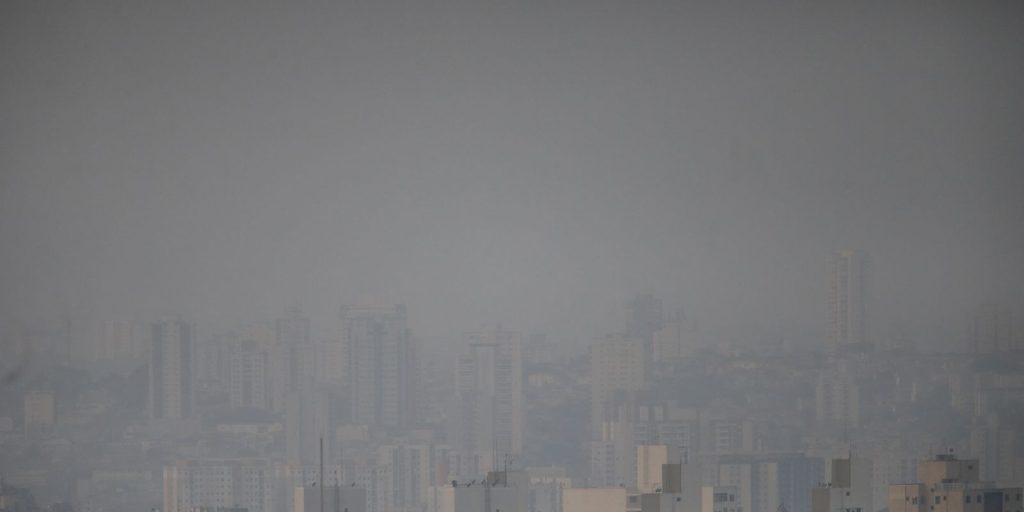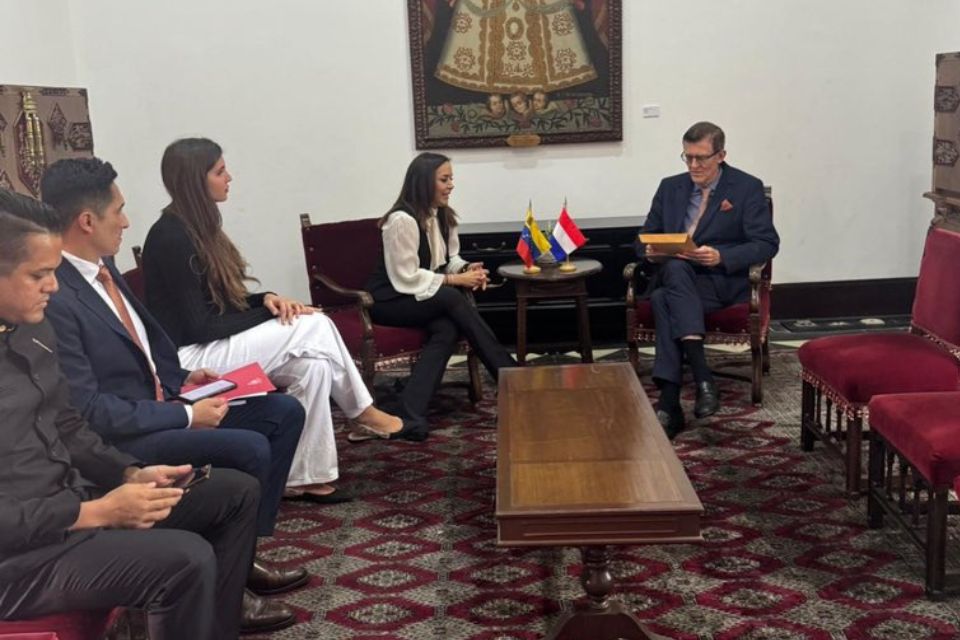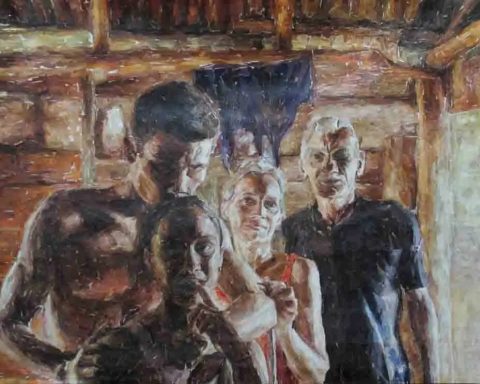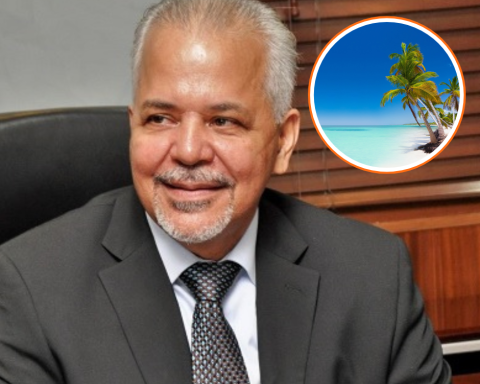September 9, 2024, 7:19 PM
September 9, 2024, 7:19 PM
In 2020, when the constitutional period of the era of President Luis Arce began, there were three forces — Comunidad Ciudadana (CC), Creemos and the MAS— In the Legislative Assembly, three years later and facing the last year of the mandate, this correlation has tripled in various factions.
In addition to the splits that have occurred in these three political forces, a new ‘bloc’ of legislators has been added which is linked to the politician and mayor of Cochabamba, Manfred Reyes Villa, who is now stepping on the accelerator in his pre-election race with the support of dissidents from CC and Creemos.
At least that is what the protagonists of the power game that is taking place admit. for the last year of the constitutional period which will conclude the Bicentennial year.
Now, the MAS that came to the Legislature in 2020 as a “monolithic and granite block”, Now a third faction has been added that does not identify with either the Evistas or the Arcistas; it is known as the “independent” bloc..
“Each party in the Legislative Assembly has been divided into at least three parts and there are no longer benches, only blocks,” admit the legislators consulted by EL DEBER.
This scenario shows a new correlation of forces in which even, From outside this state body, they analyze the parliamentary agenda and mark projects that must be discussed and approved.
The Manfredist bench
There are at least 40 deputies, including holders and substitutes, from CC and Creemos. They have completely distanced themselves from their political alliances with those who came to occupy their curule chairs and lined up under Reyes Villa.
From the CC bench, the most affected by the departure of its parliamentarians, they see that the so-called “Manfredist bench” is emerging as a block to reinforce the weakened Arcism.
“There is a new correlation with arcism and the group related to Reyes Villa. It is public knowledge that Reyes Villa decided to create a parallel bench that is not in opposition but rather functional to President Luis Arce,” the head of the CC bench in the House of Representatives, Enrique Urquidi, told EL DEBER.
The discourse and the agenda that they are handling to approve credits is Arce’s agenda,” the legislator stressed. Although, yes, Arce was unable to overcome the “sabotage” that, according to him, exists in the Legislative Assembly to block the validation of international credits.
And in terms of numbers, how is the balance of power in the House of Representatives? This newspaper asked Urquidi. The legislator does not have exact numbers because everything “depends on what the agenda items are” that the presidency of the House proposes.
“Roughly speaking, the Arcism should have approximately 40 votes, the Evism about 27 to 25 votes, the Citizen Community 28 votes, We believe about eight votes from the organic ones, from the people who respond to Fernando Camacho, But that is relative, the numbers are not absolute because each of the sessions is different depending on the topics covered.“, the parliamentarian explained.
The most recent public meeting that Reyes Villa had with his “bench” took place on August 16, when some 42 parliamentarians attended the call of the Cochabamba leader to analyze the pending issues on the parliamentary agenda and establish a line of support or rejection.
“We are talking about issues that have been brought up by the president himself (Luis Arce), the referendum, the election of the Attorney General, the country’s economic problems (…) We have made decisions to coordinate with them. There are more than 42 parliamentarians and we have agreed that some laws must be approved in the future,” Reyes Villa told the press.
For Urquidi, the “Manfredist” bloc is finishing the job of “piercing the benches with bribes and scams” that the MAS archists started.
The “independents” of the MAS
Deputy Renán Cabezas, from the radical block of the MAS, stated that the division in his party is not only between two factions: Evistas and Arcistas, but that there are Another group, although small in number, is known as the “independents” of the MAS.
“In reality, the MAS-IPSP bench has been divided into three factions: Those of us who have remained with the organic MAS-IPSP and are with the leadership of the party headed by brother EvoThe other is the one that supports Arce Catacora, seeking other more electoral political ends, and the other fraction (the third) is the one that has declared itself independent. They do not come to our MAS meetings and they do not go to the meetings of the Arce Catacora group either. So we are talking about three fractions within the MAS”Cabezas explained to EL DEBER.
The legislator, who represents El Alto, agreed with his colleagues in pointing out that the three parliamentary groups are divided. at least three sides each. “Each one with political ends,” he added.
According to Cabezas, there are about five legislators who form the independent bloc of the MAS, Among them are Estefanía Morales and Froilán Mamani, among others. Another point that the parliamentarian highlights is that, in the last sessions, the independents did not support the approval of the Government’s bills.
Dissidents
One of the dissident deputies who is very close to Reyes Villa is Marcelo Pedrazas, who came to Parliament with CC, but who in recent administrations has distanced himself from the head of that alliance, Carlos Mesa, “because of the way it is run and the decisions that were made in the Legislative Assembly.”
“We have had purely institutional meetings (with Reyes Villa) and obviously shared the opposition’s vision regarding the issues that should be on the agenda,” Pedrazas told EL DEBER. He highlighted the presence of Reyes Villa who invited them, an invitation they could not ignore.
“We have had coincidences with a mayor who has the greatest acceptance in the country and, as opponents, we have heard those approaches (…). As politicians, we could not fail to respond to the call of the mayor who has the greatest acceptance in the country and an outstanding management and who is a relevant political actor at the national level,” said Pedrazas.
In this context, the legislator said that all meetings with Manfred are “public authorities are transparent, in Bolivia and in the face of the population.”
For the parliamentarian from Chuquisaca, the distancing of his legislative headquarters also responds to the political crisis facing Bolivia, a factor that was exacerbated because the electoral calendar was brought forward, especially due to the fight between the Evistas and the Arcistas.
